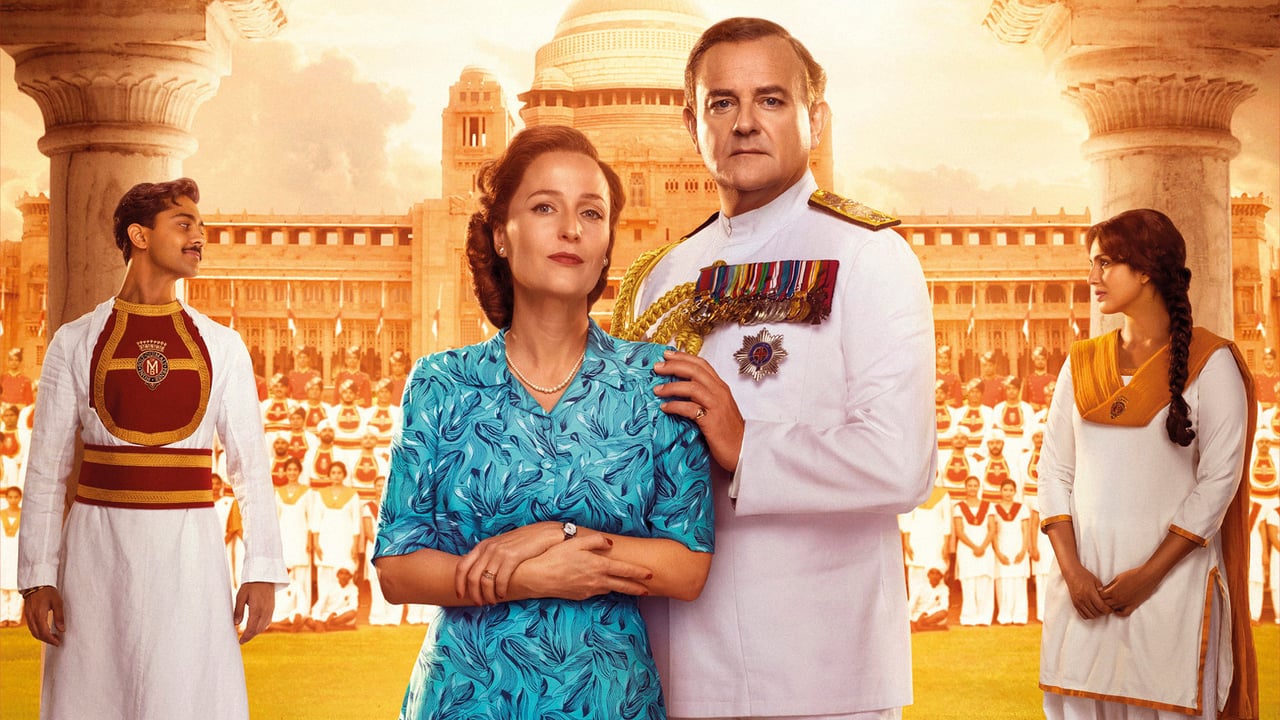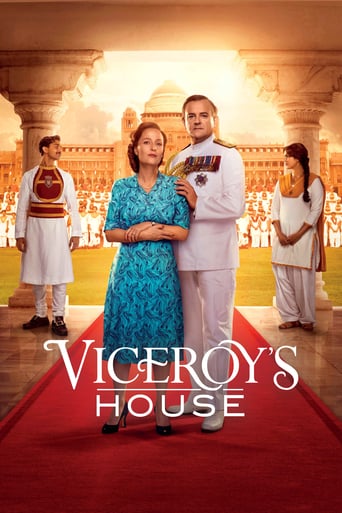



What a beautiful movie!
Let's be realistic.
It’s an especially fun movie from a director and cast who are clearly having a good time allowing themselves to let loose.
View MoreThere are moments that feel comical, some horrific, and some downright inspiring but the tonal shifts hardly matter as the end results come to a film that's perfect for this time.
View More(Flash Review)The movie opens up as if you are opening a text book as high doses of information are evenly parsed out. Only later does the text begin to fly off the page as the drama ratchets up. This tells the history, from the British perspective, of the state of India during the end of British rule over their land. A political debate revolves around if India will remain united or will it be "partitioned" or split up with Pakistan as its own country and the film focuses on the Viceroy's role in the process. (Viceroy = the British representative ruler over the Indian nation.) Everyone knows Pakistan is a country so the interesting part is seeing the tension and the high risk ramifications of various decisions. Such as a massive expanse of people and families being relocated as well as the cultural reshaping and restructuring with regard to Muslim and Indian cultures. The movie was nicely shot, well-acted, informative and the British do not appear to be truly hated by the Indian people. It was an easy watch with in-depth look into this slice of history. Yet didn't have the raw drama and for a full emotional involvement.
View MoreMy wife and I watched this at home on DVD from our public library. Historically the country of India was under British rule for about 300 years when, in 1947, it was decided to give India their independence. So the final Viceroy was sent to India, Hugh Bonneville as Lord Louis Mountbatten, eventually executing what became known as the "Mountbatten Plan". The difficulty was the three primary religious groups there, Muslims, Hindus, and Sikhs. It didn't appear that they could get along well enough to develop a government for all the people of India.As history records the solution was to carve out a portion of the country and designate it Pakistan, primarily for the Muslims. This resulted in perhaps the largest mass migration in history, people going in different directions to relocate to their new homeland.This movie is very well made and dramatizes the process and the difficulties, plus there is a forbidden love story. Also American actress Gillian Anderson is very effective as Lady Edwina Mountbatten.
View More"Viceroy's House" is nothing less than fascinating. It was a stroke of genius to set the story around the upstairs and downstairs life in the palace of the last Viceroy during the time India gained independence from Britain, occasioning the largest migration in human history.The film allows for the historical canvas to be set alongside the more intimate story of how it impacted the lives of ordinary Indians.In 1947 Lord Louis Mountbatten (Hugh Bonneville) received what seemed like the hospital pass of all time when he was appointed to overseer the transition of power from the British Raj to an independent Indian government.Mountbatten is portrayed as well-intentioned, although somewhat naive, but is shown to have the support of a warm, capable woman, his wife Edwina (Gillian Anderson). While he deals with the leading players: Nehru, Jinna and Ghandi, the mainly Indian staff is buffeted by the decisions that affect hundreds of millions of Indians.Two members of the household staff, Jeet (Manash Dayal), a Hindu, and the woman he loves, Aalia (Humar Qureshi), a Muslim, represent the divide that becomes the stumbling block to negotiations. Eventually the country is partitioned into Pakistan and India and Jeet and Aalia are separated."Viceroy's House" is well made; the scenes above and below stairs have the ring of authenticity, but it's a film that needed some jaw dropping spectacle; documentary footage is used, but there is nothing to compare to that stunning funeral scene in Richard Attenborough's "Ghandi".Some of the greatest films of all time have intimate love stories played out against the backdrop of awesome historical events; "Gone with the Wind" and "Doctor Zhivago" come to mind; both had powerful endings.However, in this case, the filmmakers opted for an ending that tended to undermine the terrific build up in the rest of the film. A happy ending? The filmmakers blinked. They just couldn't let Aalia disappear in that train massacre like Lara disappeared into the labour camp at the end of "Zhivago", something that would have reflected the real fate of millions.Sam Goldwyn once said that it is the last 5 minutes of a film that makes it memorable. "Viceroy's House", has a brilliant premise and some strong scenes, but just fails at the end to leave the audience sitting stunned in their seats after the curtains have closed.
View MoreHad uninteresting, dull characters. Music was annoying and inappropriate. Length was too long. Weak romance attempt. Boring dialogue. Tiring political discussions pondering to those who pretend Hollywood can be informative. If you're too lazy to read a history book, desperate for something to do, don't care about substance or quality filmmaking, will watch anything, and remain stubbornly/falsely positive about what you spend your money on, (and have $12 to blow,) you'll probably love this movie.
View More